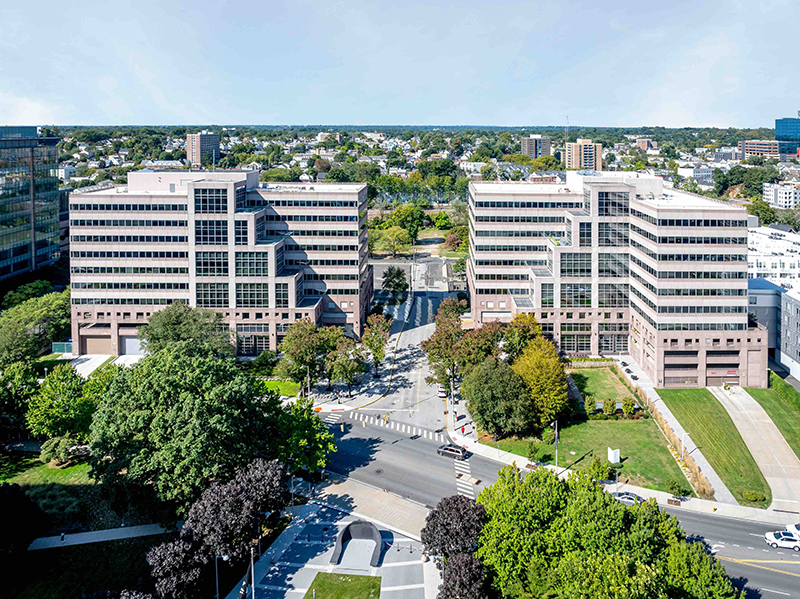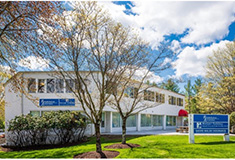News:
Connecticut
Posted: March 17, 2011
New perspectives on innovation in challenging markets
It's hard to open a business or trade magazine these days without coming across another article about survival in "hard times" or "strategies for weathering the storm". As designers, engineers, constructors or agents, have we really learned anything from several years of adversity other than how to take a "defensive" posture and pare our businesses down to the lowest common denominator? Hopefully most of us have learned something other than how to cut fees, reduce staff and minimize overhead!
For firms who have kept their eyes open there have been countless positive lessons to be learned and opportunities to be gained. It is clear and evident that even during this recent recession there has been very significant innovation in the technology, process and approach to building design and construction. We have seen these changes in forward thinking architectural practices ... but they can be applied equally to the engineering, construction and management professions:
* The essence of what we provide is service ... not product! From our client's perspective we are all in "service" industries .... whether we create designs for buildings, solve engineering problems or actually build things. Focusing on the service aspect of what we do rather than the product we think we are "selling" can potentially give a whole new perspective to our business strategies. In other words, from our client's perspective - what we do may be less important than how we do it!
* If we look at expanding the kind and quality of the services we provide our clients rather than increasing the range of products (drawings, charts and schedules) we provide we will often find that our business takes on a completely new and different character ... and our creative energies will frequently be refocused.
* Buildings are frequently used as a powerful form of "marketing" by their owners! Understanding that for a building to be great it must frequently serve to market a client's interests, as well as serve that client's functional program. Viewed in this light, the creative task becomes much more complex, and to assess the client's return on their investment (ROI) many more factors must be considered. And, most importantly, if a client realizes that you understand this aspect of their project you will immediately become part of his solution not his problem.
* We would all agree that firms that understand how to communicate the value-added aspect of specialized expertise (and even more importantly how to continually enhance it) become more competitive and are less prone to competition through low-balling fees. As we compete for opportunities the level of expertise we bring to the table will be a significant differentiator .... but thinking that expertise will naturally develop if we complete a series of similar commissions is a common mistake. Experience does not assure expertise!
* Although we are all selling "expertise" in some form or another, all too often we do nothing to overtly grow our expertise. We are all very familiar with the critical role that research and development plays in the innovation of new products, but we frequently miss its role and significance when applied to service-sector business. Investing in overt, uncommissioned research and development projects is a powerful way to grow levels of expertise that can never be developed through the mere repetitive completion of similar projects. Especially during a down-turn in work it is far better to put idle staff to work on a research project than to have them organize your neglected storage closets.
* Thinking of technology merely as a better tool to do things we already do is missing the fundamental opportunity of new technologies - to do things that have not yet been done (and could not be done) without the benefit of that technology. Something we rarely think about - most great inventions have been preceded by the development of a new material or technology that allowed that innovative product to be conceivable. We can never forecast the future that technologies will bring before we actually engage those technologies. The design and construction industries are currently flooded with new technologies waiting to be exploited.
* Most of us would acknowledge that what we accomplish as designers and constructors is generally the product of collaboration and brainstorming. Teamwork is a learned skill and it will not result by merely gathering talented people together in a room. An obvious, but often overlooked, conclusion is that paying attention to how we actually work in teams within our office confines will make our work-product measurably better and more competitive than competitors who ignore an overt focus on teamwork. Much has been written about teamwork but little is read!
Peter Hentschel is senior principal at Tecton Architects, Hartford, Conn.
Tags:
Connecticut
MORE FROM Connecticut
CBRE brokers sale of Stamford Towers - 326,468 s/f Class A office
Stamford, CT The CBRE team of Jeff Dunne, Steve Bardsley, and Travis Langer, in collaboration with David Block, completed the sale of Stamford Towers, located at 680 & 750 Washington Blvd. CBRE represented the seller, CBRE Investment Management, and procured the buyer, a joint venture of Lamar Companies











.png)